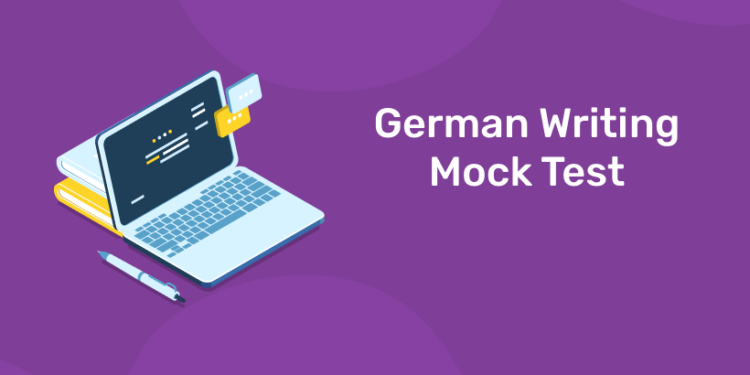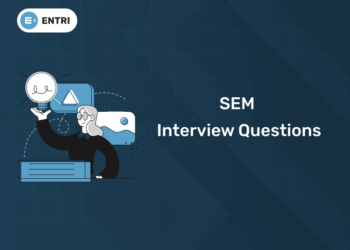Table of Contents
German writing mock test will give insight to proficiency is a valuable skill that extends beyond mere communication. It allows you to articulate your thoughts, ideas, and emotions with precision and eloquence in the German language. Whether you’re striving for academic excellence, career advancement, or simply seeking a deeper connection with the culture, mastering the German Writing Mock Test plays a pivotal role in your language learning journey. In this comprehensive guide, we will delve into the essential aspects of the test, including tips, strategies, and resources to empower you to excel and reach your writing goals.
In the pointers that follow, we’ll delve into the nitty-gritty of preparing for your German writing mock test. We’ll cover everything from expanding your vocabulary and perfecting pronunciation to tackling time management and keeping your cool under pressure. With each step, we’ll be by your side, offering insights and strategies that will help you not only succeed in the test but also continue to thrive in your ongoing language-learning adventure. So, let’s dive in and get you well-prepared to rock that German writing mock test!
|
German A2 Exercises – Download Free PDF |
||
German Writing Mock Test – Importance
Written communication in German is a vital skill that serves as a bridge to academic and professional success, cultural enrichment, and global connectivity. Whether you’re sending an email, composing a report, or crafting an essay, clear and well-structured writing allows you to express your thoughts and ideas with precision and impact. It is an essential component of language proficiency and a valuable asset in our interconnected world.German writing proficiency is the key to unlocking several opportunities and advantages:
Effective Communication
- Effective communication through writing is a universal skill that transcends languages and cultures. In the context of German, it becomes a powerful tool for connecting with others, sharing ideas, and achieving various personal and professional goals.
- It enables you to engage in written communication effectively, whether you are sending emails, composing reports, or crafting essays.
- Clear and well-structured writing is essential for conveying your ideas. Let’s delve into the importance of effective written communication and how it applies to the German language
Clarity of Expression
- Clear and well-structured writing is fundamental for conveying your ideas accurately. In the context of the German language, this means using proper grammar, syntax, and vocabulary to ensure that your message is understood without ambiguity.
- When you write clearly in German, there is no room for misinterpretation, which is essential in various scenarios.
Professional and Academic Success
- In academic and professional settings, the ability to communicate effectively through writing is highly valued. Whether you’re a student composing essays or research papers, or a professional writing reports and documents, your writing skills have a direct impact on your success.
- Well-structured and coherent writing reflects your competence and professionalism, enhancing your academic and career prospects.
Persuasion and Influence
- Effective written communication allows you to persuade and influence your audience.
- Whether you are crafting a persuasive essay, a business proposal, or a letter of recommendation, your ability to present a compelling argument and convey your message persuasively can lead to positive outcomes.
Cultural Appreciation
- In the context of learning the German language, writing is a gateway to appreciating the culture, literature, and history of German-speaking regions.
- When you can read and write in German, you gain access to a vast array of literary and cultural treasures.
- It allows you to explore the works of famous German authors, read historical documents, and immerse yourself in the world of German literature.
Global Connectivity
- Writing in German also opens the doors to global connectivity.
- Germany is one of the world’s major economic and political players, and the German language is spoken not only in Germany but also in Austria, Switzerland, and various other parts of Europe.
- Effective written communication in German can facilitate international collaboration and cultural exchange.
Intellectual Development
- Writing is a process that requires critical thinking and the organization of ideas.
- When you write in German, you are not only mastering a language but also enhancing your intellectual development.
- Writing encourages you to articulate your thoughts and analyze information, which are valuable skills applicable to various aspects of life.
German Writing Mock Test – Format
The German Writing Mock Test is specifically designed to evaluate your capacity to express yourself in written German. It typically consists of various writing tasks such as essays, letters, reports, or other forms of written communication. Your writing is assessed based on several criteria including grammar, vocabulary, coherence, and content. Succeeding in this test is a testament to your competence as a writer in the German language.
Ready to take your German language skills to the next level? Get Free Demo Classes Here!
Grammar and Syntax
- Grammatical Correctness evaluates your ability to construct sentences that adhere to the rules of German grammar. It includes using the correct cases (nominative, accusative, dative, genitive), employing the appropriate gender for nouns, and conjugating verbs accurately.
- The use of verb tenses is crucial. You should be able to convey actions in the past, present, and future accurately. This criterion assesses your command of tenses like the present, past (simple and perfect), and future
- German has a specific word order, which is different from English. Your ability to place words in the correct order, especially in complex sentences, is a fundamental aspect of this evaluation.
Vocabulary and Word Choice
- The assessment focuses on whether your choice of words and phrases is appropriate for the context.
- Using the right vocabulary ensures that your writing accurately conveys your intended meaning.
- Having a diverse and rich vocabulary is highly beneficial. It not only adds depth to your writing but also prevents repetition, making your composition more engaging for the reader.
Coherence and Structure
- Logical Flow criterion evaluates how logically your ideas are presented.
- Your writing should flow smoothly, with one idea leading to the next in a coherent manner.
- Transitions between sentences and paragraphs are essential for a clear and organized structure.
- Proper use of paragraphs helps in organizing your content effectively. Each paragraph should focus on a specific aspect of the topic, and they should be logically connected to form a cohesive whole.
- The clarity and consistency of your arguments or ideas are assessed.
- Your writing should have a logical structure that allows the reader to follow your thought process effortlessly.
Content and Relevance
- Your writing must be directly related to the topic or task provided in the test. Deviating from the given prompt can lead to a loss of points.
- Ensure that your content is aligned with the instructions.
- Effective Addressing measures how effectively you address the topic. Your response should comprehensively cover the subject matter and respond to any specific questions or requirements presented in the prompt.
The German Writing Mock Test evaluates your proficiency in various aspects of writing, including grammar and syntax, vocabulary and word choice, coherence and structure, and content relevance. Excelling in this test showcases your ability to communicate effectively in written German, making it an essential skill for academic, professional, and personal communication in the language.
| German Language Courses | |
| German Language A1 Course Online Coaching | German Language A2 Course |
| German Language B1 Course online Coaching | German Language B2 Course Online Coaching |
German Writing Mock Test – Sample Papers
As you embark on the journey of preparing for the German writing mock test, you’re likely on the lookout for invaluable resources to bolster your confidence and readiness. And you’re in luck because mock tests are your secret weapon for success. These practice assessments provide the ideal training ground, equipping you with the skills and confidence needed to excel in your German listening mock test. Each mock test you conquer brings you one step closer to your ultimate goal: acing the real deal.
- To become well-acquainted with the format of the German writing mock test, it’s wise to utilize sample writing materials and practice tests available both online and in textbooks.
- These resources are thoughtfully designed to mirror the structure and style of the actual test.
- By working through sample tests, you gain insight into the types of questions you’ll encounter and the expected level of difficulty. This preparation not only reduces test-day anxiety but also hones your test-taking skills, providing you with a valuable advantage when it’s time to sit for the real exam.
- Whether you’re in the early stages of your preparation or seeking to fine-tune your skills, these sample papers are your trusty companions on the journey to German listening mastery.
- Entri will offer you the opportunity to not only understand the format of the test but also to practice, learn, and grow. With every practice question and every full mock test you conquer, you fortify your writing abilities and bolster your readiness.
- When the day of the German writing mock test arrives, you can face it with determination and confidence.
German Writing Mock Test: Tips for Success
To achieve success in the German Writing Mock Test, consider the following tips. By following these tips and regularly practicing your writing skills, you’ll be better prepared to excel in the German Writing Mock Test. Building a strong foundation in vocabulary and grammar, planning your writing effectively, and proofreading your work will help you produce clear and well-structured written pieces, ultimately leading to success in the test.
Vocabulary Building:
- Expanding your vocabulary is crucial for effective writing. The more words and expressions you know, the more precisely you can express your thoughts.
- To build your German vocabulary, make it a habit to learn new words regularly. You can use flashcards, vocabulary apps, or simply keep a vocabulary journal to record and practice new words.
- Try to learn words in context, so you understand how to use them in sentences.
Grammar Mastery
- Strong grammar skills are essential for clear and effective writing.
- Review and practice German grammar rules, including articles, verb conjugations, sentence structure, and punctuation.
- Consistent practice and study will help you use grammar correctly and avoid common mistakes.
Prewriting and Planning
- Before you start writing, it’s essential to plan your composition. Outline the main points, supporting arguments, or central ideas you want to convey.
- Structuring your writing beforehand helps ensure that your text flows logically and coherently.
- Create a rough draft or an outline to organize your thoughts and ideas effectively.
Proofreading
- Always allocate time for proofreading your work. After you’ve finished writing, review your text carefully to identify and correct any spelling errors, grammar mistakes, or inconsistencies.
- A well-proofread piece of writing appears more professional and communicates your ideas clearly.
- You can also ask a native speaker or a language tutor to review your work for feedback.
Practice, Practice, Practice
- Writing is a skill that improves with practice. The more you write, the better you become at expressing yourself in German.
- Engage in writing exercises, create essays, or maintain a journal where you write about your daily experiences or thoughts.
- Writing regularly not only helps you practice vocabulary and grammar but also enhances your ability to structure and communicate ideas effectively.
FLY TO YOUR DREAM GERMANY ! ENROLL NOW !
Resources for Effective Practice
Mastery of the German language isn’t just about speaking and reading; writing is an integral part of your linguistic journey. Whether you’re preparing for an exam or simply seeking to become proficient in German, excelling in the writing section is a significant milestone. In this guide, we’ll explore a wealth of resources tailored to enhance your German writing skills, allowing you to immerse yourself in the language, understand its nuances, and enjoy the process.
- Improving your German writing skills demands consistent and diversified practice.
- By utilizing a range of resources, you can customize your learning experience to suit your interests and proficiency level.
- Embrace the journey, enjoy the process, and watch your reading skills flourish.
Tackling German Grammar
Grammar, often considered the formidable dragon of language learning, need not be a daunting adversary on your path to mastering German. In this chapter, we’ll embark on a journey to unravel the intricacies of German grammar, breaking down essential rules and helping you face common challenges with confidence. Our goal is to make seemingly complex concepts more approachable, so you can navigate the labyrinth of grammar with ease.
- Let’s begin with the basics. German, like any language, has fundamental grammar rules that form the building blocks of coherent communication.
- From articles and nouns to verbs and sentence structure, we’ll explore the core elements that shape the German language.
- By establishing a solid foundation in these fundamentals, you’ll not only speak with clarity but also better understand the structure of the language.
- While grammar rules provide a framework for communication, common challenges can be stumbling blocks on your linguistic journey.
- We’ll address some of the most persistent issues faced by German learners, such as cases, word order, and verb conjugation. With practical explanations and tips, you’ll gain the tools to tackle these challenges head-on.
- To make complex concepts more approachable, we’ll employ user-friendly techniques.
- We’ll provide mnemonic devices, real-life examples, and interactive exercises that turn the seemingly intricate into manageable tasks.
- By approaching grammar with curiosity and patience, you can transform it from a foe into a trusted ally in your quest for fluency.
In essence, tackling German grammar is about demystifying the language’s structural rules and embracing them as your companions on your language-learning journey. By breaking down essentials, addressing common challenges, and making complex concepts approachable, you’ll not only speak German more confidently but also appreciate the elegance of its grammatical structure. So, embark on this adventure, and let the mastery of German grammar be a source of pride in your linguistic arsenal.
German Writing Mock Test – Pointers
It is essential to remember that language learning is not a destination but a continuous journey. As you wrap up this guide, consider the following key points to ensure your language-learning adventure remains fulfilling and successful.
- Patience and Persistence: Learning a new language can be challenging, and there may be moments of frustration. Embrace these challenges as part of the journey and maintain patience and persistence. Your dedication to consistent practice and improvement will pay off in the long run.
- Celebrate Small Victories: While the ultimate goal may be fluency, don’t forget to celebrate the small victories along the way. Whether it’s successfully holding a conversation, understanding a complex text, or nailing a tricky grammar rule, these achievements are signs of progress.
- Enjoy the Process: Language learning can be incredibly rewarding, offering insights into a new culture and expanding your horizons. Savor the process of discovery, and take pleasure in every word learned, every sentence spoken, and every aspect of German culture you encounter.
- Set Realistic Goals: Set achievable language-learning goals that are specific and measurable. Whether it’s passing a language proficiency exam, engaging in a conversation with a native speaker, or reading a German novel, having clear objectives will keep you motivated and on track.
- Diverse Learning: Language learning is not limited to textbooks and grammar exercises. Engage with a variety of resources, such as books, music, films, and conversations with native speakers. Explore different aspects of the language and culture to maintain your enthusiasm.
- Stay Connected: Connect with a community of language learners, whether online or in person. Sharing your experiences, seeking advice, and practicing with others can be motivating and fun.
- Continuous Improvement: Fluency is a dynamic state, and there is always room for improvement. Keep refining your language skills, learning new vocabulary, and exploring advanced topics in German.
- Cultural Appreciation: Remember that language and culture are intertwined. Continue to explore German traditions, history, and the diverse regions that make up Germany. This cultural understanding will deepen your connection to the language.
- Language Evolution: Language is constantly evolving, and the way it is spoken can change over time. Stay open to these changes and adapt to new expressions and idioms as you encounter them.
- Never Stop Learning: Finally, embrace the notion that language learning is a lifelong journey. Even as you become proficient, there is always more to discover and explore in the world of the German language.
Writing in German is not just a learning process; it’s a journey of discovery and immersion in a world of words, stories, and knowledge. Achieving success in the reading mock test opens the doors to the world of German literature. It allows you to read the works of celebrated authors, understand historical documents, and connect with contemporary thought. Through literature, you gain insights into the nuances of the German language and the cultural richness it holds.
| German Language Course in Different Cities |
| German Language Course in Trivandrum |
| German Language Course in Thrissur |
| German Language Course in Kottayam |
| German Language Course in Kochi |
| German Language Course in Calicut |
A Note by Entri
Your journey to mastering German reading involves exploring diverse resources that cater to your interests and proficiency level. By diving into German literature, staying informed with news articles, starting with children’s books, using language apps and websites, accessing virtual libraries, and connecting with reading communities, you equip yourself with a rich toolkit for reading success. Regular practice is the cornerstone of success in the writing mock test. Engaging with diverse reading materials, whether it’s literature, news, or other texts, allows you to become accustomed to the intricacies of the German language. This consistent practice sharpens your reading skills and fosters a deep understanding of written German.
Conclusion
Mastering the German Writing Mock Test is a significant milestone on your language learning journey. It extends beyond evaluation, as it is a gateway to effective communication, cultural appreciation, and language mastery. By incorporating the tips and utilizing the available resources, you can excel in the test and elevate your proficiency as a writer in the German language. Embrace this challenge with enthusiasm, and may your journey be filled with success and fulfillment.










